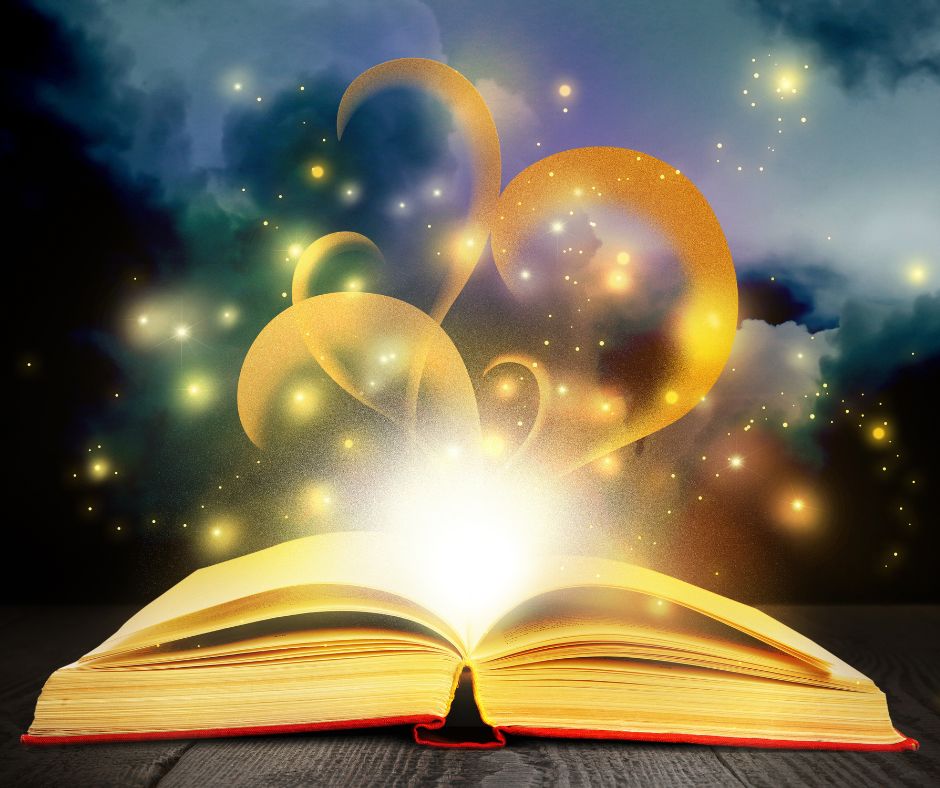Demystifying Russian Magic: Exploring Rituals, Spells, And Folklore
Table of Contents
What Does It Mean By Russian Magic?
Russian magic can refers to two main things:
Folk magic: This is the traditional magic practiced by everyday people in Russia for centuries. It can be divided into two categories: “unclean” (evil) magic and “productive” (good) magic. Unclean magic is associated with the devil and seen as harmful, while productive magic aims to bring good luck, health, or protection.
Stage magic: Russia has a rich history of stage magicians and illusionists. These performers use sleight of hand, illusions, and theatrical techniques to amaze audiences.
It’s important to distinguish between folk magic, which is based on traditional beliefs, and stage magic, which is a form of entertainment.
What Are The Rituals?
Russian Magic, the term likely arose from the combination of:
- Folk beliefs and practices: Russia has a rich history of folklore and pagan traditions that incorporated magic into everyday life. These practices varied depending on the region and purpose, but could involve herbal remedies, charms, protective rituals, or divination.
- Mysticism and intrigue: Russia’s vast landscape and cultural history have fostered a sense of mystery. Writers and artists have often portrayed Russia as a land filled with secrets and esoteric knowledge, which can contribute to the idea of a unique “Russian magic.”
Here’s a breakdown of why rituals might not be directly linked to the name:
- Folk magic is diverse: Rituals in Russian folk magic would depend on the specific goal (healing, protection, love) and local traditions. There’s no single set of practices that defines it all.
- Stage magic is for show: Stage magicians design their acts for entertainment, so their rituals wouldn’t be based on any specific tradition. They might create a theatrical performance around the idea of “Russian magic” but it wouldn’t be an authentic folk practice.
Different Types Of Rituals In Russian Magic
Russian magic, particularly folk magic, is a fascinating blend of tradition, nature worship, and everyday practices. Here’s is the list of different types:

Protective Rituals:
- Oberegi (Обереги): These are protective charms or amulets created from natural materials like herbs, wood, or animal bones. They can be worn or placed around the home to ward off evil spirits, illness, or bad luck.
- Domovushka appeasement: The domovoi is a house spirit believed to bring good fortune or misfortune. Rituals might involve leaving offerings of food or drink to keep the domovoi happy and ensure the household’s well-being.
Healing Rituals:
- Gathering herbs: Certain herbs are believed to possess healing properties. Rituals might involve collecting them at specific times (full moon, sunrise) and using them in teas, poultices, or baths.
- Šeptuny (Шептуны): These were “whisperers” or healers who used spoken charms (zagovory) and traditional remedies to cure ailments.
Divination Rituals:
- Gadanie (Гадание): This is a general term for divination practices used to predict the future or gain insights into a situation. Tools might include tarot cards, rune stones, interpreting dreams, or observing natural phenomena (bird behavior, cloud formations).
- Vodoleystvo (Водолейство): This ritual involves melting wax and interpreting the shapes formed in water to gain knowledge about the future.
Other Rituals:
- Ritual baths: Bathing, particularly in natural bodies of water, can be seen as a way to cleanse oneself physically and spiritually. Ritual baths might be taken before important events or holidays.
- Holiday rituals: Many Russian holidays have rituals associated with them. For example, Maslenitsa (Shrovetide) involves feasting and burning an effigy to encourage a good harvest.
Important Caveats:
- Regional variations: These rituals can vary greatly depending on the specific region of Russia. What’s practiced in Siberia might be different from southern Russia.
- Secrecy and Transmission: Many traditional practices were passed down orally within families or communities. Finding detailed information can be challenging.
- Appropriation and Ethics: Be cautious of sources online or in books. Some might sensationalize or misrepresent these traditions. It’s important to be respectful and avoid practices that could be harmful.
Russian Magic Traditional Stories And Beliefs
Russian magic is deeply woven into the fabric of traditional stories and beliefs. Here’s a glimpse into this fascinating world:

The Duality of Magic:
- Good vs. Evil: Russian magic often depicts a duality between “productive” magic (used for good) and “unclean” magic (associated with the devil and used for harm). This reflects the struggle between good and evil in everyday life.
- Nature Spirits: The natural world plays a vital role. Forests, rivers, and house spirits (domovoi) are acknowledged and sometimes appeased through offerings or rituals. These spirits can be helpful or mischievous depending on how they’re treated.
Common Characters and Creatures:
- Baba Yaga: This iconic bone-legged witch lives in a hut that walks on chicken legs. She can be a helpful guide or a fearsome obstacle in fairytales, representing the power and wisdom (or danger) found in the wilderness.
- Leshy (Леший): The forest spirit, often depicted as a tall man or a humanoid creature made of trees and moss. He can be benevolent or lead people astray in the woods.
- Rusalka (Русалка): Beautiful water spirits who lure men to their deaths. They represent the beauty and danger of nature.
Magical Objects and Practices:
- Firebird (Жар-птица): A magical bird with feathers of fire that brings good luck and fortune. Stealing a feather is a common quest in fairytales.
- Flying Carpet (Ковёр-самолёт): A magical carpet that allows people to fly through the air. This fantastical object symbolizes freedom and the ability to overcome obstacles.
- Ivan the Fool (Иван-дурак): A common archetype in Russian fairytales. Despite seeming foolish, he often succeeds through kindness, luck, and sometimes a bit of magic.
Exploring the Stories:
- Fairytales: Classic collections like those by Alexander Afanasyev offer a treasure trove of magical tales.
- Byliny (Былины): These epic poems tell stories of heroes with supernatural abilities, often battling mythical creatures.
- Skazki (Сказки): These are shorter, more fantastical folktales that can also feature magical elements.
The Importance of Stories:
These stories not only entertain but also:
- Explain the world: They provide explanations for natural phenomena and the mysteries of life.
- Teach moral lessons: They emphasize values like courage, kindness, and respecting nature.
- Preserve tradition: They pass down beliefs and practices from one generation to the next.
Russian Magic Richness And Diversity
The richness and diversity of Russian magic is truly captivating. It’s not just a collection of spells, but a complex web of traditions, beliefs, and practices woven into the very fabric of Russian culture. Here’s a breakdown of its multifaceted nature:
Deeply Rooted in Nature:
- Nature Spirits: From the mischievous Leshy (forest spirit) to the beautiful but dangerous Rusalka (water spirits), the natural world is teeming with spirits. Respecting and interacting with these spirits forms a core aspect of many rituals.
- Herbal Remedies: Certain plants are believed to hold healing properties, leading to rituals for collecting herbs at specific times and using them in teas, poultices, or baths.
Duality and Balance:
- Good vs. Evil Magic: Russian magic acknowledges a duality. “Productive” magic aims for good like healing, protection, or prosperity. “Unclean” magic, associated with the devil, is used for malicious purposes. This reflects the struggle between light and dark in life.
Regional Variations:
- Vast Landscape, Diverse Practices: Rituals and beliefs can differ greatly depending on the region. Practices in Siberia might involve appeasing different spirits than those found in southern Russia. This regional diversity adds to the richness of the tradition.
Oral Traditions and Everyday Life:
- Passed Down Through Generations: Many traditional practices were passed down through families and communities, often relying on spoken formulas (zagovory) rather than written spells. This focus on oral tradition makes it challenging to find detailed information today.
- Magic in the Mundane: Everyday actions could be imbued with magic. Ritual baths for cleansing, offerings to appease house spirits, or using charms for protection all demonstrate how magic intertwined with daily life.
Stories as Keepers of Tradition:
- Fairytales and Byliny: Folktales like those featuring Baba Yaga or fantastical objects like the flying carpet not only entertain but also preserve magical beliefs. Epic poems (byliny) tell stories of heroes with supernatural abilities, further solidifying the role of magic in the cultural narrative.
Importance of Respect:
While exploring Russian magic can be fascinating, it’s crucial to be respectful:
- Avoid Appropriation: Be cautious of sources that sensationalize or misrepresent these traditions.
- Seek Reputable Resources: Look for academic books on Slavic folklore or the history of magic in Russia, or reputable websites that discuss these traditions with cultural sensitivity.
The richness of Russian magic lies in its connection to nature, its duality, regional variations, and its deep integration into everyday life and stories. By exploring it with respect, you can gain a deeper understanding of Russian culture and its fascinating relationship with the unseen world.
Exploring the Mysteries of Russian Magic:

Russia, with its vast landscapes, rich history, and deep-rooted cultural traditions, is a land steeped in mysticism and magic. Within its folklore and legends lie the secrets of a potent form of sorcery that has captivated imaginations for centuries. Russian magic, often intertwined with the country’s pagan past and Orthodox Christian beliefs, offers a fascinating glimpse into the supernatural realms that coexist alongside the mundane world.
At the heart of Russian magic lies a profound connection to nature and the elements. From the towering peaks of the Ural Mountains to the sprawling plains of Siberia, the land itself is imbued with mystical energies that have inspired generations of practitioners to commune with the spirits of the earth, sky, and water. In this tradition, shamans and wise women known as “vedma” (witches) serve as intermediaries between the human realm and the unseen forces that govern the natural world.
Central to Russian magical practices are rituals and incantations passed down through oral tradition and written texts. These rites often involve the use of herbs, candles, and talismans to invoke the aid of benevolent spirits or protect against malevolent forces. One of the most famous figures in Russian folklore is Baba Yaga, a powerful witch who dwells in a hut that stands on chicken legs and flies through the air. Despite her fearsome reputation, Baba Yaga is often depicted as a guardian of wisdom, dispensing advice to those brave enough to seek her out.
Another prominent aspect of Russian magic is the belief in “domovoi” – household spirits that protect the home and its inhabitants. Offerings of bread and milk are made to these benevolent beings, who are said to bring good fortune to those who honor them but can wreak havoc on those who neglect their duties as hosts.
In addition to domestic magic, Russian folklore is replete with tales of shape-shifters, water nymphs, and forest spirits, each embodying the primal forces of nature in their own unique way. These creatures, known as “rusalki,” “leshy,” and “vodyanoy,” among others, are often feared and revered in equal measure, their capricious nature serving as a reminder of the untamed wilderness that lies beyond the borders of human civilization.
Despite the enduring popularity of Russian magic in literature and art, its practice has waned in modern times, supplanted by the rise of Christianity and the spread of rationalism. Yet, echoes of this ancient tradition can still be found in the rituals and superstitions that persist in rural communities and the folk customs that endure to this day.
Is RussianMagic.com Domain Name Available?
Domain name RussianMagic.com is now available for sale, offering you the perfect opportunity to weave enchantment into your business endeavors. Imagine the possibilities as you harness the power of this evocative domain name to captivate audiences and carve out your niche in the digital realm.
RussianMagic.com is more than just a domain name; it’s a portal to a realm of infinite potential. Whether you’re an entrepreneur seeking to launch a new venture or an established business looking to expand your online presence, this domain name offers a unique opportunity to stand out from the crowd and make a lasting impression on your audience.
At just $498, RussianMagic.com represents an exceptional value for a domain name of such strength and resonance. With its memorable combination of words, it’s sure to leave a lasting impression on anyone who encounters it. And thanks to its universal appeal, it’s suitable for a wide range of businesses and industries, from travel and tourism to entertainment, fashion, and beyond.
But don’t just take our word for it – consider the many ways in which RussianMagic.com can elevate your brand:
- Cultural Immersion: Tap into the allure of Russian folklore and mysticism to create an immersive brand experience that transports customers to a world of enchantment and wonder.
- Unique Branding: Stand out from the competition with a distinctive and memorable domain name that sets your business apart and leaves a lasting impression on potential customers.
- Market Expansion: Expand your reach into new markets and demographics by leveraging the universal appeal of Russian culture and magic to attract a diverse audience of enthusiasts and aficionados.
- Content Creation: Fuel your content marketing efforts with a domain name that sparks curiosity and invites exploration, inspiring a steady stream of engaging and shareable content that keeps customers coming back for more.
- E-Commerce Potential: Explore the potential for e-commerce opportunities centered around Russian-themed products and experiences, from artisanal crafts and clothing to virtual tours and experiences.
Purchasing RussianMagic.com is a straightforward process that can be completed through any reputable domain registrar. Simply visit your preferred registrar’s website, search for RussianMagic.com, and follow the prompts to complete your purchase. Once you’ve secured the domain name, you’ll have full control over its use and can begin building your online presence with confidence.

Conclusion
Russian magic offers a window into a world of wonder and mystery, where the boundaries between the natural and supernatural blur and the spirits of the land hold sway over the hearts and minds of those who dare to seek their favor. Whether viewed through the lens of folklore or explored through the practice of ancient rites, the magic of Russia continues to inspire awe and fascination in all who encounter it.
Most Common Questions And Their Answers
1. What Does It Mean By Russian Magic?
Russian magic refers to a rich tapestry of beliefs, rituals, and practices rooted in Slavic folklore and pagan traditions. It encompasses everything from herbal remedies and protective charms to divination and spirit communication.
2. What Are The Rituals?
Rituals play a central role in Russian magic. These can be simple acts like brewing herbal teas for healing or elaborate ceremonies for protection or achieving specific goals.
3. Different Types Of Rituals In Russian Magic
Russian magic boasts a diversity of rituals, some of which include:
Healing rituals: Utilizing herbs and natural elements to restore health.
Divination: Foretelling the future through various methods like tea leaf reading or casting runes.
Protection rituals: Warding off evil spirits or negative energies.
Love spells: Attracting romantic interests (be cautious about ethical implications).
4. Russian Magic Traditional Stories And Beliefs
Russian magic is deeply intertwined with folklore. Popular stories feature mythical creatures like Domovoi (house spirits), Leshy (forest spirits), and Baba Yaga (a powerful witch). Beliefs in spirits, curses, and the ability to influence one’s destiny are woven into the cultural fabric.
5. Russian Magic Richness And Diversity
The beauty of Russian magic lies in its regional variations. Practices and beliefs differ across vast stretches of Russia, reflecting the country’s rich cultural heritage.
6. Exploring the Mysteries of Russian Magic:
This blog post serves as a springboard to explore the captivating world of Russian magic. We’ll delve deeper into specific rituals, historical accounts, and the cultural significance of these practices.
7. Is RussianMagic.com Domain Name Available?
To check if “RussianMagic.com” is available for purchase, you can visit a domain registrar like Google Domains, GoDaddy, or Namecheap. These platforms allow you to search for domain names and see if they’re up for grabs.
 Domains Uncle
Domains Uncle



